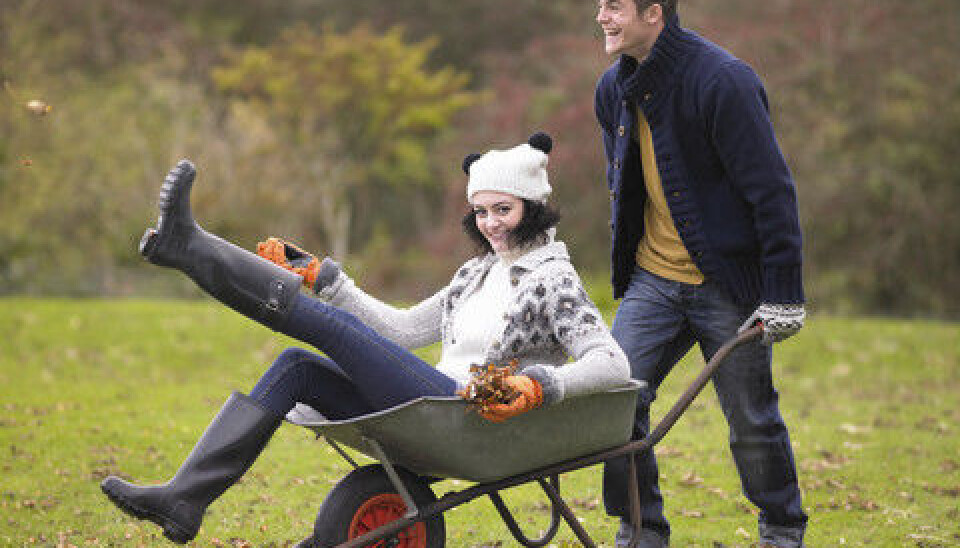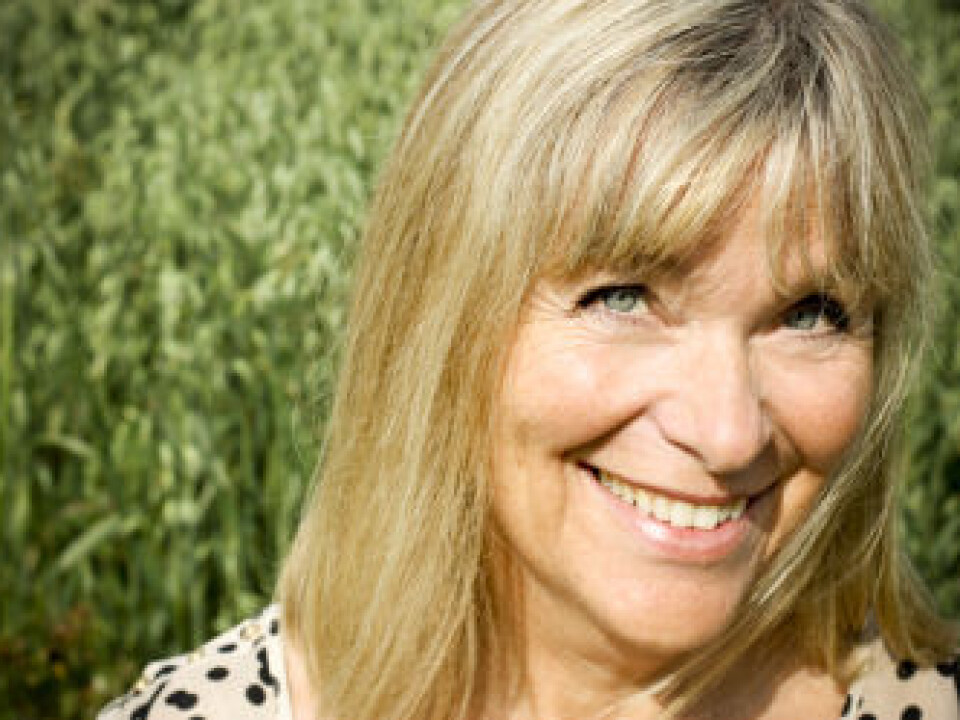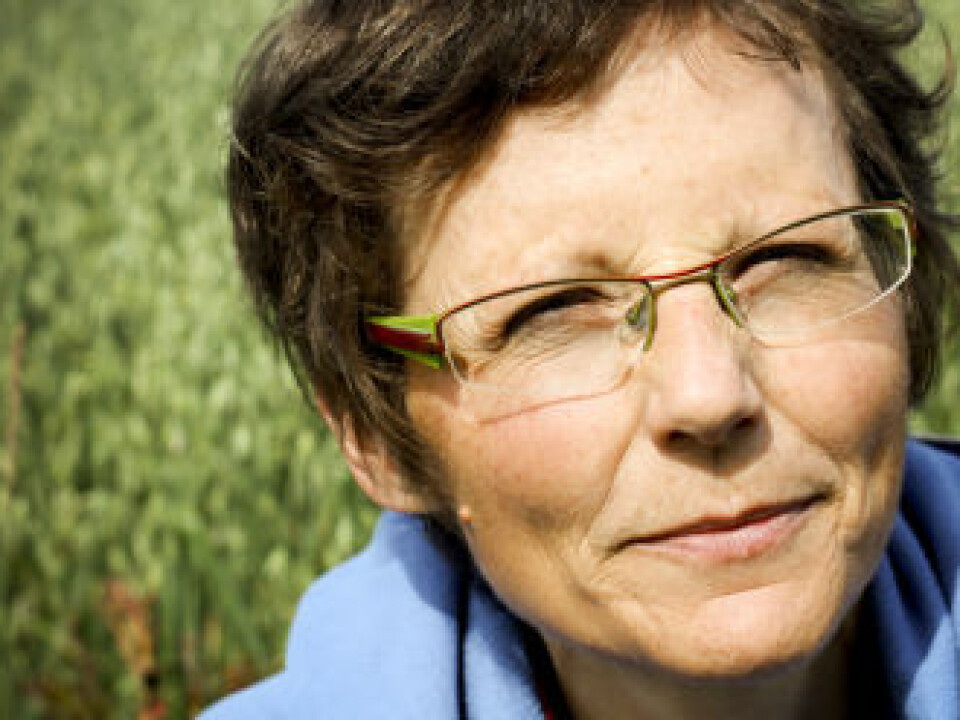An article from KILDEN Information and News About Gender Research in Norway

Tough love on the farm
For farm couples, divorce can be especially tough because there is usually only one winner after the settlement: the farm.
Denne artikkelen er over ti år gammel og kan inneholde utdatert informasjon.
It’s more complicated to break up if you live on a farm than if you live elsewhere. Much more complicated – emotionally, financially and legally.
A new study shows that a break-up can be highly problematic for farm couples, because family farms are both a location for domestic life and a business.
In Norway, a higher percentage of farmers are married than the population as a whole. They also have a lower percentage of divorces. But according to Statistics Norway farmers' divorce rate is on the rise and cohabiting is becoming more common.
Gro Follo and Marit S. Haugen are in the final phase of the research project “Love on the farm: A risky business? Marital settlements, cohabiting agreements and divorce in family farms”.

“We have observed a clear trend that relationships between couples on Norwegian farms are changing like for other couples,” says Haugen, sociologist and research director at the Centre for Rural Research, Norway.
She refers to statistics, questionnaires and in-depth interviews conducted since the research project began in 2009.
“Only eight percent of cohabiting farm couples said they had written a cohabitation agreement. This indicates that very many couples can be in a weak position if they break up," says Haugen.
Cohabiting couples don’t have the same legal rights as married couples. The Marriage Act regulates what the financial settlement will look like and takes better care of the individuals if they get divorced or if a spouse dies.

"For this reason farmers are recommended to marry or to sign a cohabitation agreement,” says Haugen.
The spouse’s interests ignored
Some married farm couples sign a marriage settlement in which they agree on solutions other than those of the Marriage Act.
“Out of a sample of 600 married farm couples, we found that six percent of them had written a marriage settlement,” says Haugen.
“When we study the content of these agreements, it turns out that they are written to establish a separate property arrangement for the farm owner.”
Although a marriage settlement can also be used to safeguard the person who marries into the farm, the researchers seldom found this to be the case in the agreements they analysed.
Difficult break-up
If a break-up occurs, the farm couple can expect to struggle, according to findings from the project’s in-depth interviews.
“We interviewed people who have gone through a family break-up. Some of them had written agreements, and this could make the break-up settlement easier because the legal issues had been clarified. But things don’t always work out as agreed. Generally we see that the separation is a long-lasting, complicated process. In one case we found that the settlement even five years after the divorce wasn’t completed,” Anthropologist Gro Follo adds.
There are many considerations to take into account in divorce situations in agriculture. The family farm business must continue to operate.
"Thus it’s not as easy as selling the farm house and dividing up the assets. It’s also a challenge to figure out how much of the farm assets the person moving out can claim without destroying the farm’s viability. One thing is what a person has a legal right to; the reality is often quite different,” says Haugen.
Inextricably tied to the land
The researchers found that women who married into a farm could lose out after a break-up.
After many years on the farm they are left with two empty hands. In some cases there is so much debt on the property that they can consider themselves lucky if they can leave without having to pay down on the loan.
"This might be women who have worked on the farm for years. These women lose their life’s work, where they have invested a great deal – time, work, money and love. It is precisely this that makes the break-up so complicated,” says Haugen.
Farming is different from other family businesses because farm production is so inextricably tied to the land.
"You can’t simply move the means of production,” says Follo.
The long-lasting break-up
“A relationship break-up is also very emotional. It is tied to the ownership of the farm, which might go back many generations. But the women who move out often have strong ties to the farm too. We find that when they move out, they choose to live nearby, so the children can still have a close connection to the farm and with their father. This is what we call the long-lasting break-up,” explains Haugen.
The long-lasting break-up process also entails taking care of practical matters.
"We see that in some cases when the man moves out, he continues to help run the farm in a transition period,” says Haugen.
Breaking up alone
It is commonly thought that rural communities have closely knit networks.
“You would think that many people lend a helping hand when a farm couple breaks up. The neighbours might be supportive when illness strikes, but not when divorce happens. Many tell us that they felt they had to go through the divorce all alone,” says Haugen.
The couples don't ask for help. Many of them want to protect themselves from gossip and rumours. Some also find that it is difficult to talk about a break-up in the agricultural community because so many interests are affected.
It can also be difficult for people in rural communities to get involved, because this can mean that they will be forced to take sides.
"This can be hard in a rural community since they will have to interact with both parties in the future,” Follo notes.
“We also find that men have the hardest time talking about the break-up. Many tell about psychological problems related to the break-up, and this in turn can negatively affect their ability to run the farm. It is only when the difficulties turn into a crisis on the farm that we hear the neighbours and other farmers turn out to help,” says Haugen.
A predicted crisis
“People go through a break-up alone because divorce is viewed as a personal matter in our culture. Maybe the agricultural community needs to be more actively involved in this issue, since agricultural production suffers so much as a result of it,” says Follo.
There is a growing number of cohabiting farm couples in agriculture, and other research shows that cohabiting partners break up more often than married couples. In addition, the number of divorces among the agricultural population is on the rise.
"With these increasing numbers, the break-ups might lead to a structural problem for agriculture,” Follo cautions.
“If nothing changes, the predicted crisis will materialise. We need greater awareness of what life together on a farm means and what a break-up may result in. Counseling for new couples must improve, and it must be easier for couples to address questions related to property and contracts. We believe both parties will benefit from this,” says Haugen.
“In our material, people emphasise that written agreements make living together easier. They say that it feels like everything is in order and that life is more secure. There is no tension beneath the surface, and this frees up energy for other things,” Haugen concludes.
































